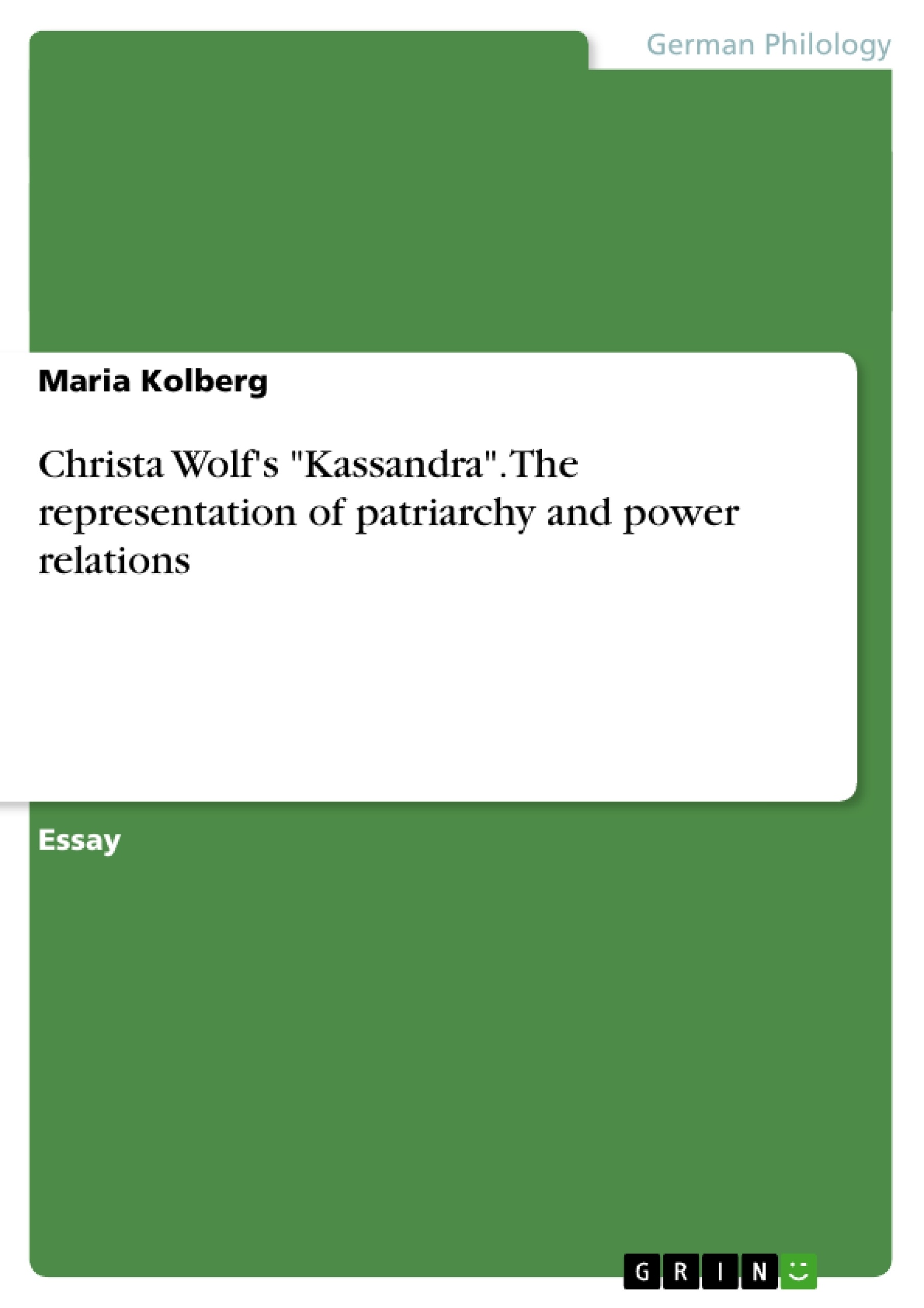Abstract or Introduction
Cassandra – a modern woman in ancient times. The East-German writer Christa Wolf publishes the story about the Trojan king’s daughter Cassandra, who is judged to be unseen although being blessed with the gift of prophecy in 1983. The story is told retrospectively by the dying Cassandra waiting in front of the “Löwentor” for her execution in Agamemnon’s castle. Throughout the story, one can figure out a re-creation process of herself and a development from a silent female object into a conscious subject. Similarly to Christa Wolf, who tried to achieve a certain self-understanding as a woman author while writing the narrative (Kuhn, p. 186).
In addition, there are some suppositions that Wolf criticises in Cassandra the political structure of the former GDR. Even the characters represent political entities. Priam, in that sense, stands for the social state, Hecuba for the party and Eumelus for the State Security Service (Kuhn, p. 184).
Furthermore, it is a “feminist critique of literature and society” (Kuhn, p. 178) and describes a radical social change from matriarchy to patriarchy on the basis of the ancient myth of Cassandra. For this purpose, Wolf uses the male figures partly to correct the exclusion of women in the ancient models by Aeschylus and Homer. In these dramas women were depicted as dependent objects. In Christa Wolf’s famous Frankfurter Poetik-Vorlesung in 1982, she speaks about questions which might arise by the reader. More specifically, in A Letter, her fourth lecture on poetics, Wolf disapproves the constant exclusion of female writers in the history of literature and in society. Wolf declares in her essay that
an [essential characteristic of the origins of the Greek epic] [is the] amalgamation of patriarchy, property, and hierarchy, coupled with the simultaneous displacement, exclusion, and objectification of women (Kuhn, p. 186).
With her rewriting of the myth she tries to resolve the fact that “the experienced reality of women” of the Trojan War has been excluded (Kuhn, p. 188). In that sense, Cassandra’s exemplary subjectivity should encourage female resistance in a patriarchal world (Kuhn, 191). The story Cassandra shows the displacement of a matriarchal or at least a society with equal rights by a patriarchal system. Therefore, I am going to discuss how patriarchy is represented and how power relations are depicted in the following essay.
- Quote paper
- Maria Kolberg (Author), 2011, Christa Wolf's "Kassandra". The representation of patriarchy and power relations, Munich, GRIN Verlag, https://www.grin.com/document/230750
Publish now - it's free






















Comments